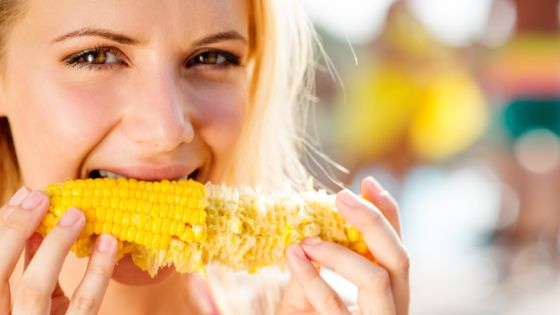Why do we eat corn if we can't digest it?

Why do we eat corn if we can't digest it? Corn is a staple crop in the United States, but many people struggle to digest it because of the cellulose in its cell walls.
Cellulose is a type of fiber in all plant cell walls. It is difficult to digest and can cause problems like gas and bloating.
Even though we can't digest corn's cellulose, that doesn't mean we should stop eating it.
Corn is a nutrient-rich food that provides essential vitamins, minerals, and antioxidants.
Why do we eat corn if we can't digest it?
Corn is one of the most popular crops in the world, and it's used in various products, from animal feed to biofuels. But did you know that humans can't digest corn? It's true!
Corn is a good source of fiber, and the body cannot digest cellulose, which makes up the bulk of the plant.
However, while we can't digest corn, that doesn't mean it's not nutritious.
The body can break down other components of corn, such as starch and protein.
Chewing corn for a long time can also help the digestive system break down cellulose walls to access more nutrients.
So next time you're munching on popcorn or enjoying a cob of corn, remember that your body is getting more out of it than you might think!
Is it healthy?
Corn is healthy food. It is low in fat and a good source of fiber, vitamins, and minerals.
Additionally, corn is a whole grain, which contains all of the essential parts of the grain kernel.
Whole grains have been linked to health benefits, including reduced heart disease and diabetes risk.
However, not all types of corn are equally healthy. For example, popcorn is a type of corn that is high in fiber and low in calories.
On the other hand, corn chips are generally high in fat and calories. As a result, the healthiness of corn depends on the form in which it is consumed.
Corn can be a healthy part of a balanced diet when eaten in moderation.
Nutrition facts about corn
Did you know that corn is not only delicious but it's also packed with nutrients?
According to USDA, here are just a few of the many nutrition facts about this excellent food:
One ear of corn contains about 35 calories and 2 grams of fiber. It's also a good source of Vitamins C and B6, potassium, and magnesium.
Corn is a whole grain that contains all three parts of the grain kernel - the germ, endosperm, and bran. That makes it an excellent choice for people who want more whole grains in their diet.
Corn is also a good source of antioxidants, which can help to protect your cells from damage. Additionally, corn contains lutein and zeaxanthin, two essential nutrients that are known to support eye health.
So next time you're looking for healthy and delicious food to add to your meal, make sure to include corn! You'll be getting loads of nutrition along with that fabulous taste.
Tips for preparing corn
There are many different ways to prepare corn. It can be boiled, grilled, roasted, or eaten raw.
If you're boiling corn, add salt to the water to help bring out the flavor.
Grilling or roasting corn is a great way to add a smoky flavor to the dish.
If you're eating raw corn, remove the husk and silk before consuming.
You can also cut the kernels off the cob to make them easier to eat.
No matter how you prepare it, corn is delicious and versatile food that you can enjoy in many different ways!
4 Healthy corn alternatives
While corn is a popular food item, it is also high in sugar and carbs. As a result, many people are looking for healthier alternatives and lower calories.
Quinoa
One option is quinoa. This ancient grain is packed with protein and fiber, making it a filling and nutritious choice.
Brown rice
Another option is brown rice. Brown rice is a whole grain that has been minimally processed, meaning it retains more nutrients than white rice. Additionally, brown rice is good magnesium, potassium, and selenium source.
Cauliflower
This vegetable can be used as a low-carb alternative to rice or potatoes. It is also rich in vitamins C and K and folate.
Sweet potatoes
These starchy tubers are a good source of fiber and vitamins A and C. Therefore, they can be a healthier alternative to white potatoes.
Whether you are looking to cut down on carbs or want to eat more healthfully, these alternatives to corn can help you meet your goals.
The bottom line
We hope you've enjoyed this article on corn. Have you ever wondered why we eat it if our bodies can't digest it? Well, now you know!
Check out some of our other articles for more exciting information about the human body and how it works. Thanks for reading!
DISCLAIMER: buildyourbody.org does not provide medical advice, examination, or diagnosis.
Medically reviewed and approved by Nataniel Josue M D.
